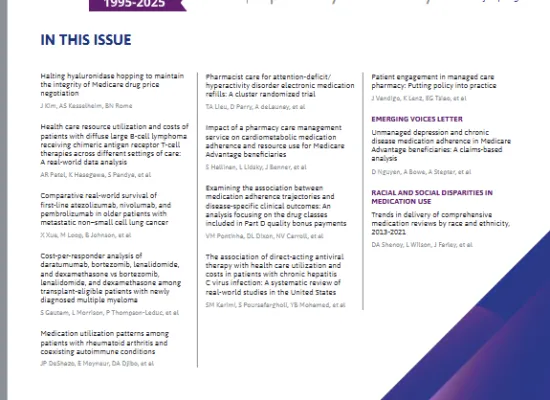
Frequently Asked Questions (FAQs) on GLP-1 Medications

Get quick answers to some of the most common questions on GLP-1 therapies.
What is GLP-1?
Glucagon-like peptide-1 (GLP-1) is a naturally occurring hormone in the body that plays a role in regulating blood sugar, appetite, and digestion. It has several effects, including stimulating insulin secretion (to lower blood sugar) and promoting satiety (the feeling of fullness). By slowing the transit of food from the stomach, GLP-1 helps individuals feel fuller longer, thus curbing appetite.
What are GLP-1 RAs?
Glucagon-like peptide-1 (GLP-1) receptor agonists (RA) are a class of prescription medications used to treat type 2 diabetes mellitus (T2DM) and/or obesity. GLP-1 RAs approved for diabetes include semaglutide (Ozempic, Rybelsus), liraglutide (Victoza), dulaglutide (Trulicity), and exenatide (Byetta, Bydureon). Tirzepatide (Mounjaro), a GLP-1/glucose-dependent insulinotropic polypeptide (GIP) RA is also available.
Semaglutide (Wegovy), tirzepatide (Zepbound), and liraglutide (Saxenda) are FDA-approved for weight loss in patients without diabetes.
Why are patients using diabetes-approved GLP-1 RAs for weight loss?
Despite being approved only for patients with T2DM, Ozempic and Mounjaro are commonly used off-label in the treatment of obesity. This is likely due to overlapping active ingredients and doses between products.
Ozempic shares the same active ingredient as Wegovy (semaglutide). Ozempic’s maintenance dose is 0.5 mg to 2 mg once weekly, while Wegovy’s maintenance dose is 1.7 mg to 2.4 mg once weekly for adults. Similarly, Mounjaro shares the same active ingredient as Zepbound (tirzepatide). Both Mounjaro and Zepbound are dosed 5 mg to 15 mg once weekly. In clinical studies, patients with T2DM treated with Ozempic or Mounjaro also experienced weight loss.
We likely do not see much use of Victoza in place of Saxenda (both liraglutide products) for a few reasons. Saxenda (the weight loss liraglutide product) is dosed at 3 mg once daily, while Victoza (the diabetes liraglutide product) is dosed at 1.2 mg to 1.8 mg daily. The lack of overlapping doses makes off-label use more challenging. Another consideration is that liraglutide products are dosed daily, as opposed to weekly administration of semaglutide and tirzepatide products, which is less favorable for patients.
One important practice consideration for managed care pharmacists is that for those patients who do not have coverage for obesity medications, patients may attempt to fill diabetes-approved GLP-1 RAs rather than paying the full out-of-pocket cost for obesity-approved GLP-1 RAs.
What is the scope of misuse of diabetes-approved GLP-1 RAs for weight loss in patients without diabetes?
This is difficult to quantify for a number of reasons. Patients with obesity may be appropriately treated with diabetes-approved GLP-1 RAs if they also have a diagnosis of T2DM, though claims data may not fully capture this information.
According to the 2024 IQVIA Use of Medicines report, GLP-1 RAs made up 16% of all diabetes prescriptions in 2023 compared with just 5% in 2019, and that trend has increased 152% since 2018, primarily driven by an increase in uptake of GLP-1 RAs. It is possible that this trend is due, at least in part, to the off-label use of diabetes-approved GLP-1 RAs for weight loss in patients without diabetes.
How are managed care pharmacists combating the misuse of diabetes-approved GLP-1 RAs for weight loss in patients without diabetes?
Many health plans and pharmacy benefit managers (PBMs) have instituted prior authorization to ensure the appropriate use of these medications for FDA-approved uses. If patients meet the plan or PBM’s criteria, which often includes confirming the patient’s diagnosis of T2DM, coverage of the diabetes-approved GLP-1 RAs will be provided.
Some payers are also relying on pharmacists in the community setting to confirm the patient’s diagnosis is appropriate prior to dispensing (i.e., the patient has T2DM if they are requesting a diabetes-approved GLP-1 RA).
How are health plans and PBMs using data to address GLP-1 RA misuse?
By analyzing prescription claims information, health plans and PBMs can identify prescribing trends from physicians and other health care providers. Using this information, health plans and PBMs can target individual providers with educational outreach on prescription benefits. For example, if a health plan or PBM identifies that prescriptions for diabetes-approved GLP-1 RAs are coming from obesity specialists, it can communicate the importance of appropriate prescribing and the implications if the trend continues.
Additionally, using medical and pharmacy claims data can allow health plans and PBMs to more effectively identify patients who are inappropriately prescribed diabetes-approved GLP-1 RAs in the absence of a T2DM diagnosis. This can allow for targeted prior authorization efforts to limit the impact on patients with T2DM who are appropriately receiving diabetes-approved GLP-1 RAs.
Are obesity medications covered by Medicare?
No, drugs approved exclusively for weight loss are excluded from basic Medicare coverage under section 1860D-2(e)(2) of the Social Security Act. However, CMS clarified in a memo dated March 20, 2024, that “anti-obesity medications that receive FDA approval for an additional medically accepted indication … can be considered a Part D drug for that specific use.”
As of August 19, 2024, the only GLP-1 RA this applies to is Wegovy, which, in addition to its obesity indication, is also indicated to reduce the risk of major adverse cardiovascular events in adults with established cardiovascular disease and either obesity or overweight.
How are shortages impacting GLP-1 RAs?
Until recently, shortages impacted all of the weight loss GLP-1 RAs and their diabetes-approved counterparts. The FDA allows pharmacies to sell compounded versions of medications that are in shortage. This led to a number of issues, including compounded versions containing different salts, including semaglutide sodium and semaglutide acetate, which the FDA considers different active ingredients; inaccuracies in dosing and labeling leading to dosing errors and adverse events; and the rise of illegal, online pharmacies and counterfeit GLP-1 RA distribution.
As these shortages resolve, it is unclear how quickly inappropriate or illegal distribution of copy-cat GLP-1 RAs will cease.
Shortage information can be found on the FDA’s shortage database or on the ASHP shortage list.
How likely are individuals who take GLP-1 RAs for obesity to stay on therapy?
Long-term data is still emerging, but one study published in the May issue of the Journal of Managed Care and Specialty Pharmacy (JMCP) identified that approximately two-thirds of patients treated with GLP-1 RAs for obesity experienced at least a 60-day gap in treatment within the first year and just over one-quarter of patients remained at least 80% adherent to therapy. Adherence was higher with weekly semaglutide as opposed to daily liraglutide. A follow-up abstract presented by Prime Therapeutics/Magellan Rx Management identified that adherence falls further, to approximately 17%, after 2 years, though weekly semaglutide adherence remained approximately 24% at 2 years. A separate research letter published in JAMA identified an average percentage of days covered (PDC) of 54% in patients with obesity and without diabetes 12 months after GLP-1 RA initiation.
The implications of this are important for several reasons. First, data suggest that individuals who discontinue treatment with GLP-1 RAs are likely to regain a considerable portion of the weight lost after starting therapy. Additionally, patients using diabetes-approved GLP-1 RAs for obesity in the absence of a T2DM diagnosis would still be considered part of the eligible population for the Center for Medicare and Medicaid Services’ Medication Adherence for Diabetes Medications Star Rating measure. Poor adherence will adversely affect the plan sponsor’s performance for this measure despite the medication being used inappropriately off-label. Plan sponsors are likely to avoid this with prior authorization to ensure appropriate use.
Featured News & Resources
See Full CalendarAI Pre-Conference Program
AMCP Southwest Day of Education
Upcoming Events
AMCP offers a wide variety of educational opportunities, from events and webinars to online training.







